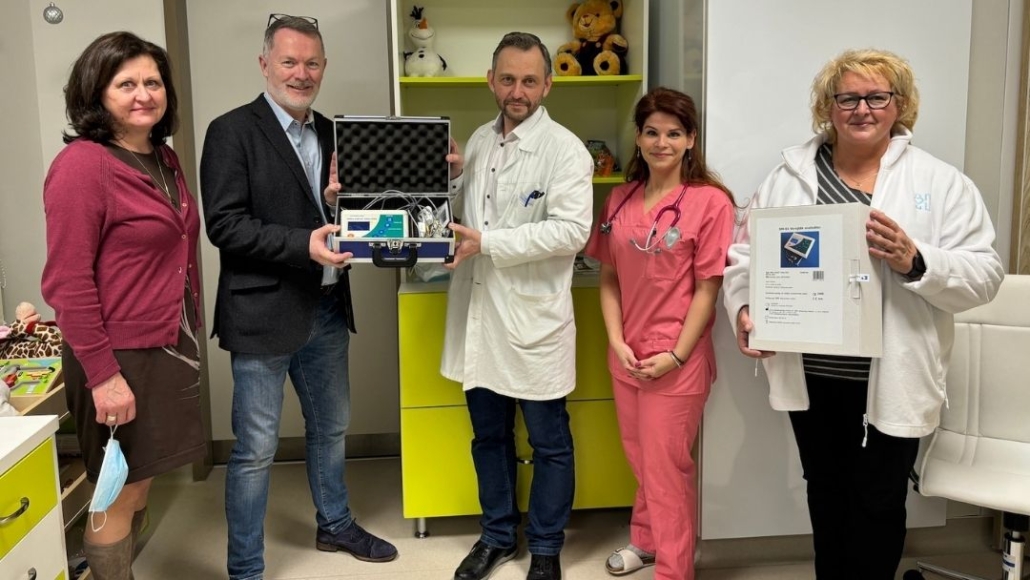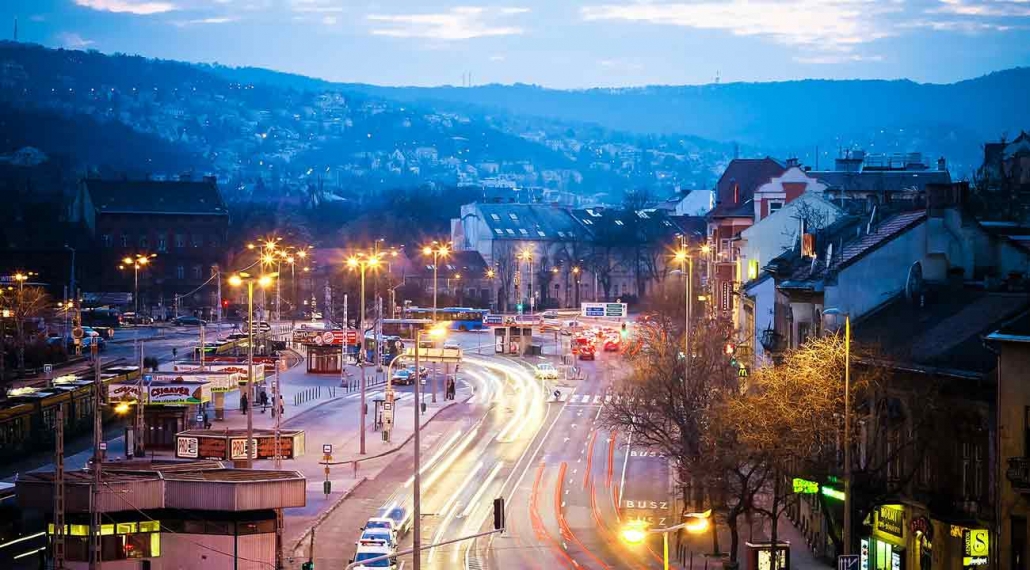Adapting to a new country and culture can take several weeks or even months, but with appropriate help, the transition can be a lot smoother.
2015/2 – by Ágnes Horváth, in Business Traveller Hungary /interview with Stuart McAlister
Finding and furnishing the suitable home, handling the documents necessary for legal employment and residence, getting to know the new place of residence and the local customs as well as finding a school and doctor pose serious challenges for foreigners when moving to another country, especially if they do not speak the local language.
Inter Relocation Group has considerable experience in helping newly-hired foreigners and their family members settle down in Hungary or any of another 19 countries. Its founder and managing director, Stuart McAlister, came to Hungary as a young and adventurous expat in the mid-1990s, before founding his own company in 2002. Over more than 20 years in Hungary, he has not only become accustomed to the culture but also mastered the language.
“We are not movers – although we can provide this type of service too with the help of our partners – we facilitate the integration of foreign employees coming to Hungary” explains Stuart McAlister.
“The majority of our work is made up of the administration of official documents, but we also focus on destination services, i.e. services related to settling down, namely residential, school and other services necessary for living in Hungary, as well as providing help with local orientation and bridging the cultural gap.”
To start with, how long does it take to obtain the documents necessary for legal employment in Hungary?
For citizens of the European Union and the European Economic Community the situation is more straightforward because the administration related to the required documents – social security card, tax card and documents necessary for employment – only has to begin after arriving in Hungary, which is less time-consuming.
For those coming from third countries, i.e. citizens of non-EU and non-EEC countries, however, the procedure is much longer because a visa is needed in many cases before even applying for a residence permit.
To this end, the purpose of the residence must be documented and fulfilment of the housing conditions must be proved (e.g. with a lease contract, title deed or address registration form) whilst verifying that there are sufficient funds on the bank account until the first salary payment is received – if a unified residence permit for work has been requested. Health insurance needs to be obtained too.
This procedure takes about four months, so it is advisable to launch it in good time as work cannot begin without a residence permit. For those who would like to drive a car it is also good to know that they can do so for one year after the legal acceptance of their residence, provided they hold an international driving licence issued by their own country. Thereafter, however, they have to request a Hungarian driving licence if their home country did not sign the 1968 Vienna Convention.
What are the first unexpected challenges facing those who come here?
Finding accommodation is particularly difficult, for example. Even more so if they do not know the language and the legal rules pertaining to lease contracts that should be observed. Another peculiarity of this issue in Hungary is that real estate agents only receive a commission from the landlord, instead of both parties or just from the tenant as in other countries.
Representing tenants we seek accommodation that satisfies demands in the best possible way, while our lawyers express opinions on the lease contract and we conduct negotiations on the rent to obtain the most favourable result for the tenant. Yet public utility contracts often have to be transferred into the tenant’s name after moving in, which can mean queuing for days.
Internet access and cable TV with appropriate channels are also frequently requested by foreigners, while they increasingly want to access online content available in their own country using their Hungarian IP address too. If something goes wrong, finding and communicating with a competent professional is likewise difficult due to the lack of language proficiency and local knowledge, not to mention recommendations for a reliable hairdresser, beautician, chiropractor or babysitter.
Families most frequently ask that their children be enrolled in schools and nurseries. Although there are plenty of “national” and international educational institutions in Budapest, they were fully occupied before the crisis with long waiting lists, since not only expats’ children attended. These institutions continuously expand, but waiting lists can still be expected.
Where do most foreign employees come from?
Hungary is becoming increasingly popular. While it was typically Europeans and North Americans that used to come here, today we now have citizens of more distant nations appearing, ranging from the Middle East to South-East Asia, while Indians are arriving in great numbers too.
But British pensioners are also able to live better here from their pensions than at home, and so we often help them in their integration and relocation.
Why has the number of Indians surged?
They mainly work in the IT sector and are needed because of their special software knowledge. They usually remain here for a couple of months, or a year, to teach the local staff, and then they leave because expats cost a lot in the long term.
Yet their departure is not always smooth since they need to claw back the deposit paid for the leased property, resolve any disputes with the landlord or even sell the car they bought here.
How has the composition of expats changed over the past years?
While it used to be mainly senior managers coming with their families, many expats are now single, have no children, and are not necessarily top managers.
Their relocation package does not always contain the presentation of elite private hospitals along with their services, as they need to settle for general Hungarian health-care services. Consequently they often ask for the contact details of an English-speaking GP or other doctor.
What problems do foreigners face most often having settled down in Hungary?
They mostly need help with repair jobs in their accommodation since repairmen and service providers don’t really speak foreign languages, though I must admit the situation has improved considerably over recent years.
On a positive note, the scandals “stinging tourists” around the turn of the millennium have now disappeared, since word gets around thanks to Tripadvisor and everybody stays away from places where this happens.
Above all things, the cultural differences present the biggest challenge.
In everyday life or at work?
Both. For example, they are not used to greetings from shop staff, so they don’t understand why they are welcomed like this. Managers of an American company recently complained that they could not find reliable Hungarian workers for months, because despite telling them what to do, the employees automatically reverted to their old habits after a couple of days.
It turned out they only gave instructions without explaining the reasons – as is usual in the USA – and so it was really difficult to put their intentions across. Following my advice, they talked at length with the employees and sought their opinions, which eventually made the communication and workflow much smoother.
To prevent and handle such cases we introduced our cultural training service, where a much-travelled and experienced professional prepares managers for communicating effectively with Hungarian colleagues. As for everyday life, we have our own publication, a special guide detailing the most important things foreigners ought to know, such as the telephone number for the ambulance service and local customs.
How can expats relax and make contacts after work?
Foreigners can choose from a variety of special networks for friends and businesses, ranging from Expats Hungary and International Meeting Point to Internations or Friday Night Crowds.
The individual chambers of commerce also bring together the Irish, the Americans, the British or the Germans living here, women can always turn to the British Women’s Association, NAWA Budapest, the Professional Women’s Club or the International Women’s Club, while Hash House Harriers combine running with entertainment.
Many people remark that a lot of Hungarians attend expat clubs in Budapest, but I think this is perfectly understandable. If you have lived abroad for quite a while, it is difficult to find the rhythm of your own town again, and you just feel better among foreigners. To be honest, if I went back to England, I would definitely join such groups myself.







